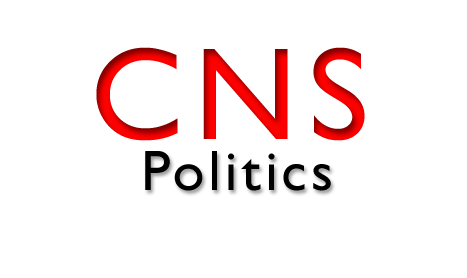CHARLOTTE, N.C. – Rep. Chris Van Hollen offered a sharp rebuke to Gov. Mitt Romney and Rep. Paul Ryan at the Democratic convention Wednesday, saying of their proposals, “If you refuse to ask the wealthiest to pitch in, then you hit everyone else much harder.”
The prominent convention speech, focused on budget issues, served to underline Van Hollen’s role in the party: He has become the Democrats’ answer to Ryan.
The two share a common rise to the top of the political scene. They’re both in leadership positions on the House Budget Committee, they both play dual roles as number-crunching policy wonks and political attack dogs, and pretty soon one will literally be playing the role of the other.
But Van Hollen, from Maryland’s 8th Congressional District, and Ryan, the Republican vice-presidential nominee, have very different views about where government’s priorities should lie.
Van Hollen, who released his own budget proposal in March to counter Ryan’s much more famous one, has emerged as a leading critic of the Ryan plan.
“It doubles down on this failed economic theory that providing tax breaks to very wealthy people like Mitt Romney will lift the economy,” Van Hollen said of Ryan’s budget proposal in an interview earlier in the day.
“When we tried that in the real world, and it crashed at the end of the Bush administration, we lost private sector jobs and the only thing that went up is the deficit. It’s one thing to hold to that theory before it’s been tested in the real world, it’s another thing to cling to it when it’s crashed and burned.”
Van Hollen is so well thought of on budget issues that Vice President Joe Biden chose him to play the role of Ryan in preparation for the vice presidential debate on Oct. 11 in Danville, Ky.
Van Hollen demurs when asked whether his close work with Ryan on the committee gives him any special insight he could bring to debate prep.
“I wouldn’t put it that way. What I would say is I have a solid understanding of why the Romney-Ryan plan is bad for the economy,” Van Hollen said. “Paul presents a plan, with a smile, that I think is very bad for the country … I like Paul personally, but I would not mistake congeniality with a willingness to compromise.”
Van Hollen was not exactly congenial in his Wednesday speech.
“Is it bold to give millionaires another tax cut while forcing seniors to pay more for Medicare?” Van Hollen asked. “Is it brave to reward companies that ship jobs overseas while cutting education here at home? Is it courageous to raise taxes on middle-class families while giving tax cuts to people with Swiss bank accounts?”
Ryan’s plan would give seniors the option to opt out of Medicare and accept a block grant to buy health care on the private market, an idea roundly criticized by Democrats.
That idea helped propel Ryan to prominence. As chairman of the House Budget Committee he developed a reputation as a policy expert familiar with the myriad arcana of the federal budget. Since being named to the Republican ticket, he has embraced the vice-presidential nominee’s traditional role as attack dog, criticizing President Barack Obama and rebuking his record at campaign stops nationwide.
Van Hollen came to national attention through his role as chairman of the Democratic Congressional Campaign Committee. As the man in charge of the official campaign apparatus of House Democrats, Van Hollen led Democrats to huge success in 2008, when they picked up 21 seats, and an even bigger failure in 2010, when they lost 63 seats. Van Hollen stepped down as chairman immediately following the 2010 elections, citing precedents of chairmen limiting themselves to two terms, while also claiming that Democratic losses would have been even greater without the work of the DCCC.
The two men’s career trajectories have moved in sync. Van Hollen’s losses with the DCCC in 2010 put the Republicans in power and allowed Ryan to take the reins of Budget. And Ryan’s nomination to the national ticket positioned Van Hollen, as the committee’s ranking minority member, as a key opposition voice.
Todd Eberly, the coordinator of public policy studies at St. Mary’s College of Maryland, sees Ryan’s elevation as a boon for Van Hollen’s national profile.
“What really worked out for Van Hollen is, given that he’s ranking member on the Budget Committee, he has this opportunity as the Democratic or progressive counterpart to the Ryan philosophy of where Republicans would take us with regard to spending priorities,” Eberly said.
“A lot of folks here in Maryland view Chris Van Hollen as a rising star within the Democratic Party,” Eberly said.
Van Hollen, along with Maryland Gov. Martin O’Malley, crashed the Republican convention in Tampa last week. Van Hollen used the surprise appearance as another chance to assail the Romney-Ryan ticket.
“He’s going to double down on windfall tax breaks on the rich like himself,” Van Hollen told CNS reporter Matt McNab. “When the rich aren’t going to pay a cent more, it’s going to come at the expense of students, the middle class, and almost everyone else.
In 2008, Van Hollen was named by then-Speaker Nancy Pelosi to the largely symbolic role in congressional leadership of assistant to the Speaker of the House, but lost it when Democrats lost power in 2010.
Pelosi also named Van Hollen to the “super committee” on deficit reduction last year.
“He has been chairman of the DCCC for a couple terms so members love him, and he has led brilliantly on the budget issues,” Pelosi told U.S. News and World Report on Wednesday.

